IBM Websphere Commerce vs Shopify Plus: The Future of Enterprise Ecommerce is Here
While Shopify Plus has been rapidly gaining popularity with enterprise businesses around the globe, older architectures such as IBM Websphere Commerce seem to be coming up against more challenges than ever.
Is your business torn between sticking with an outdated legacy platform or migrating to a newer, more reliable solution?
Written By
Esther Lowde

Ecommerce is no longer simply about displaying and selling your products online.
To stay ahead of the competition, you need to make sure that you’re hosting your website on a platform which delivers a rich and seamless user experience for your local and global customers alike.
As your traffic grows, it’s also crucial that you can trust your platform to stay up and running during your busiest sales days; both handling and accelerating your business’ growth.
Of course, migrating your website to a new ecommerce platform is a huge undertaking for any business. But if you’re experiencing any problems with your current solution’s reliability, complexity or usability, don’t settle! Switching to a newer, more dependable platform could transform your success online.
Today, we want to highlight how moving away from Websphere Commerce’s flexible but complex older architecture towards a more reliable, well-supported and continuously updated platform like Shopify Plus could help future-proof your business.
Let’s begin by outlining your core needs as a larger enterprise.
What do enterprise businesses need to operative effectively online?
As every business is unique, every merchant will have different ideas about how they want to present and run their store – and so will require different features from their ecommerce platform.
However, at the heart of it all, every enterprise needs a platform which is reliable, easy to use and built to operate at scale.
Every enterprise needs to feel sure that their ecommerce platform will be able to support them even under the weight of Black Friday sales (and other periods of high demand).
You also need to feel confident that the support, features and customisation options offered by your ecommerce solution are not only intuitive and easy to make the most of, but are actively driving you in the direction of constant improvement and growth.
What is Websphere Commerce?
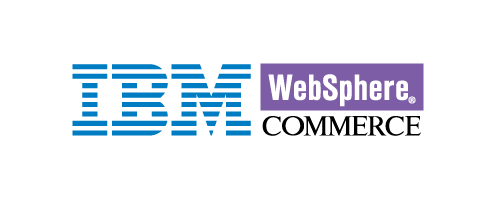
Established in the ‘90s, Websphere Commerce (formerly owned by IBM) is a cloud-based ecommerce platform which allows enterprise managers to manage and merchandise their products across all sales channels. It gives merchants the option to sell their products directly to customers (B2C) or other businesses (B2B).
Today, Websphere Commerce is the platform of choice for some of the biggest names in high street shopping – including Dick’s Sporting Goods, Topshop and Sainsbury’s.

IBM Websphere Commerce is currently used by thousands of popular ecommerce businesses.
However, in recent years the platform has seen a significant decline in popularity.
This is largely due to the arrival of newer, more robust ecommerce solutions such as Shopify Plus. It’s also down to the fact that Websphere’s solution simply cannot keep up with its merchants’ growth – and regularly fails them during major sales events like Black Friday and Boxing Day.
How is IBM Websphere Commerce failing its merchants?
As we established earlier, when it comes to running a successful enterprise ecommerce store, reliability is key.
Unfortunately, due to its older architecture and extreme customisability, Black Fridays and other peak traffic periods have resulted in catastrophe for some of Websphere Commerce’s biggest merchants. This is because the ability to add complexity to enterprise architecture increases the risk of mistakes that can crash a whole website.
Here are just a few examples of the times Websphere Commerce has buckled under pressure in the last few years:
- Following the launch of a collaboration with Beyoncé, Topshop’s Websphere Commerce site crashed due to exceptionally high demand. Shoppers faced long delays and payment problems.
- In 2017, GAME’s Websphere Commerce website crashed instantly after its Black Friday deals were launched, with losses tallying far into the millions.
- Sainsbury’s Websphere Commerce driven store buckled under the pressure of Christmas traffic back in 2014, cancelling hundreds of orders and angering the supermarket’s customers.
- In 2014, Argos’ Websphere Commerce website was unable to cope with their influx of Black Friday shoppers. The subsequent website crash cost the enterprise an estimated £5.6m.
Store crashes like these can be devastating for major enterprises as they reduce profits (often by millions), impact brand perception, decrease customer trust and limit change.
Having to retain large development teams just to keep your website up and running – rather than using your resources to improve the UX of your store – limits the growth of your business while increasing the cost of maintaining it.
Another concern for enterprises hosting their websites with Websphere Commerce is the upcoming HCL platform takeover.
IBM announced in late 2018 that it will soon be selling its ecommerce platform to India-based company HCL; an agreement which will cause large merchants to take stock as they consider that their operating platform – responsible for millions and, in some cases, billions in revenue – is now owned, supported and maintained by an entirely new team.
Combined, these factors could be the cause of Websphere Commerce’s lower levels of merchant satisfaction, as enterprise store owners are left with doubts about security and stability in the moments they need it most.
Faced with challenges like these, it’s no wonder that Websphere Commerce’s merchants are looking to newer, more reliable ecommerce platforms to fulfill their ecommerce needs.
Let’s take a closer look at the platform which is becoming more and more appealing to enterprise ecommerce managers – Shopify Plus – and why this newer ecommerce solution is rapidly becoming a favourite for so many businesses.
What is Shopify Plus?
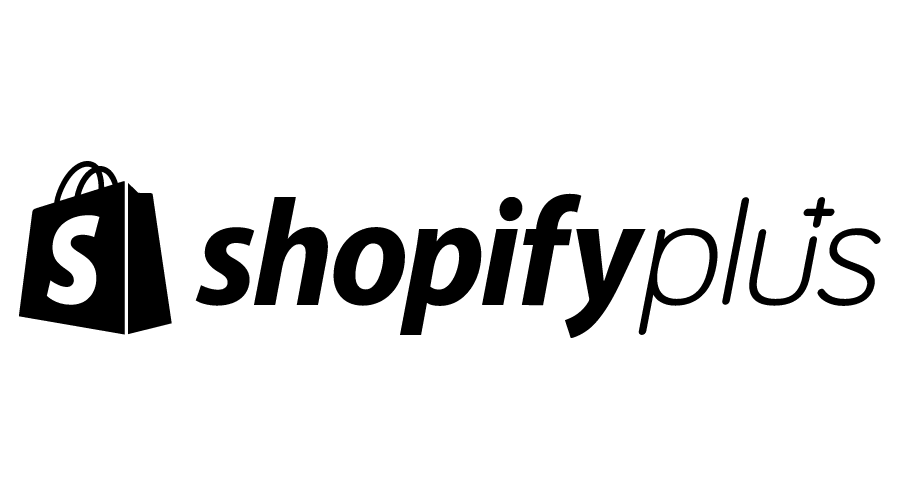
Building on the success of the original Shopify platform, Shopify Plus burst onto the digital scene in 2014 as a scalable, user-friendly and reliable solution built specifically to cater to larger enterprises’ needs.
Like Shopify, Shopify Plus allows you to sell your products locally and globally across multiple channels. The platform’s aim is to help you provide a seamless and personalised shopping experience for your customers while bypassing the costs and limitations of older, self-hosted technology. As a result, you’re left free to focus on actively promoting, building, marketing and growing your business.
Offering the same 99.98% uptime, 24/7 support and ease of use as its predecessor, this new enterprise version of the Shopify platform also comes with an abundance of exclusive Plus features.
For example, Shopify Plus provides its high-growth merchants with a fully customisable checkout, more internationalisation features, lower transaction fees, even greater technical support and advanced automation features (Launchpad and Flow) to help you streamline and automate your routine business tasks.
Thanks to its unmatched reliability, scalability and ease of management, Shopify Plus is now the fastest-growing enterprise ecommerce platform on the market.
Generating a 126% year-over-year growth rate on average for its merchants, the platform is currently trusted by over 5000 of the largest, most innovative companies in the world, including household names like Red Bull, Budweiser, Gymshark, Kylie Cosmetics and Nescafé.
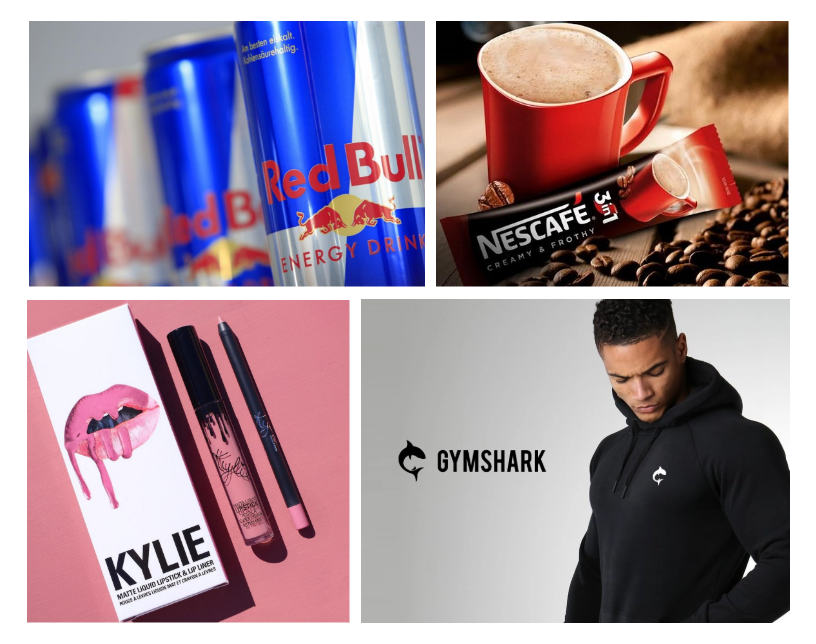
Some of the biggest brands in the world trust Shopify Plus with their businesses.
“The great thing about Shopify Plus is the fact that we fundamentally trust the platform and can do what we want almost immediately and be confident it’s going to work.”
– Ben Francis, Founder of Gymshark
How successfully is Shopify Plus serving its merchants?
Compared to Websphere Commerce’s history of sales outages, Shopify Plus is providing its merchants with quite a different ecommerce experience.
Engineered specifically to support ambitious enterprises with high-volume traffic, Shopify Plus has proven itself time and time again to be reliable at scale.
One prime example of this is the way the platform has dealt with the sudden traffic spikes of one of its major global merchants; Kylie Cosmetics.
Founded in 2015 by modern fashion icon Kylie Jenner, the young entrepreneur’s brand transacted a staggering $420m in its first 18 months post-launch – and is currently worth over a billion dollars in total.
After launching her first website with Shopify Plus, Kylie’s debut liquid lipstick was sold out within seconds.
“We launched at like 3 o’clock and I refreshed the page and it was gone. It was under a minute. It had to be like 20 seconds and it was all sold out. I was just in shock. I never imagined it would become as big as it has.”
– Kylie Jenner
And with each high-volume product launch, Shopify Plus continues to prove its reliability – even servicing 200k of Kylie’s visitors at once during one of the biggest product drops in ecommerce history.
But the team at Kylie Cosmetics certainly aren’t alone when it comes to putting all of their trust into Shopify Plus.
Another Shopify Plus merchant, Death Wish Coffee, sold $2,083 per minute following their Superbowl commercial – with no downtime or delay in load speed.
During Black Friday 2018, Shopify stores as a collective generated $37 million per hour in sales – and not a single store crashed.
Shopify Plus has proven that it won’t let its merchants down.
“Simply put, we have an enterprise ecommerce platform we trust with our business. Shopify Plus helped us scale from $1 to $60 million without flinching.”
– Jake Kassan, Founder and CEO of MVMT
Other platform differences
By now, we’ve established that Shopify Plus remains unrivalled when it comes to staying up and running under pressure.
But what other factors differentiate the old from the new?
#1 Cost
Importantly, the price points of the two platforms are dramatically different.
While Websphere Commerce offer a range of expensive contract-based price packages, Shopify Plus’ pricing is significantly more affordable. To find out more about how Shopify Plus is priced, contact our team.
“We’re going to save $108,000 a year by switching to Shopify Plus. Eventually, it’ll all fall to the bottom line, but we’re projecting to be ROI positive in year number one, even with the data migration and replatforming costs.”
– David Heath, Founder of Bombas
In addition, as a fully supported solution, you will NEVER have to process your own security patches, manage server upgrades or hosting transfers. Shopify will manage all of the back end and reliability aspects of your store, at no extra cost. This means you can stay focused on the front end – design, marketing, iteration and expansion – without having to worry about any hidden costs. Crucially, the money that you can save as a Shopify Plus merchant can be invested into exciting growth opportunities – perfect for ambitious enterprises looking to stand out in today’s crowded marketplace.
“Shopify Plus has delivered enterprise-level service at a low business cost.”
– Mika Casey, CEO & Founder of MMA Warehouse
#2 Ease of use
Another key difference between the two platforms is how easy it is for merchants to make changes to their stores themselves.
Websphere Commerce’s older business tools are relatively difficult to use, especially for non-technical users. Merchants and developers alike have reported that they find the steps involved in creating promotions or loading a catalog on their Websphere sites particularly complex.
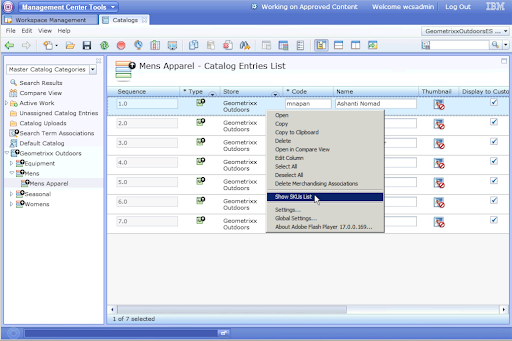
Websphere Commerce’s dashboard is outdated and complex.
Further, as Websphere Commerce is such a huge application, it can take at least 5-6 years for business owners to learn how to make the most of its features.
On the other hand, Shopify Plus makes beautiful and effective web design and strategy accessible to everyone – regardless of their technical background.
In fact, one of the key advantages of Shopify Plus that its merchants report time and time again is how easy they find the platform to use and understand.
Thanks to its logical and intuitive user interface, businesses using Shopify Plus are free to make adjustments to their website quickly and easily whenever they want to – rather than wasting their time and money trying to figure out how to navigate their own store’s backend.
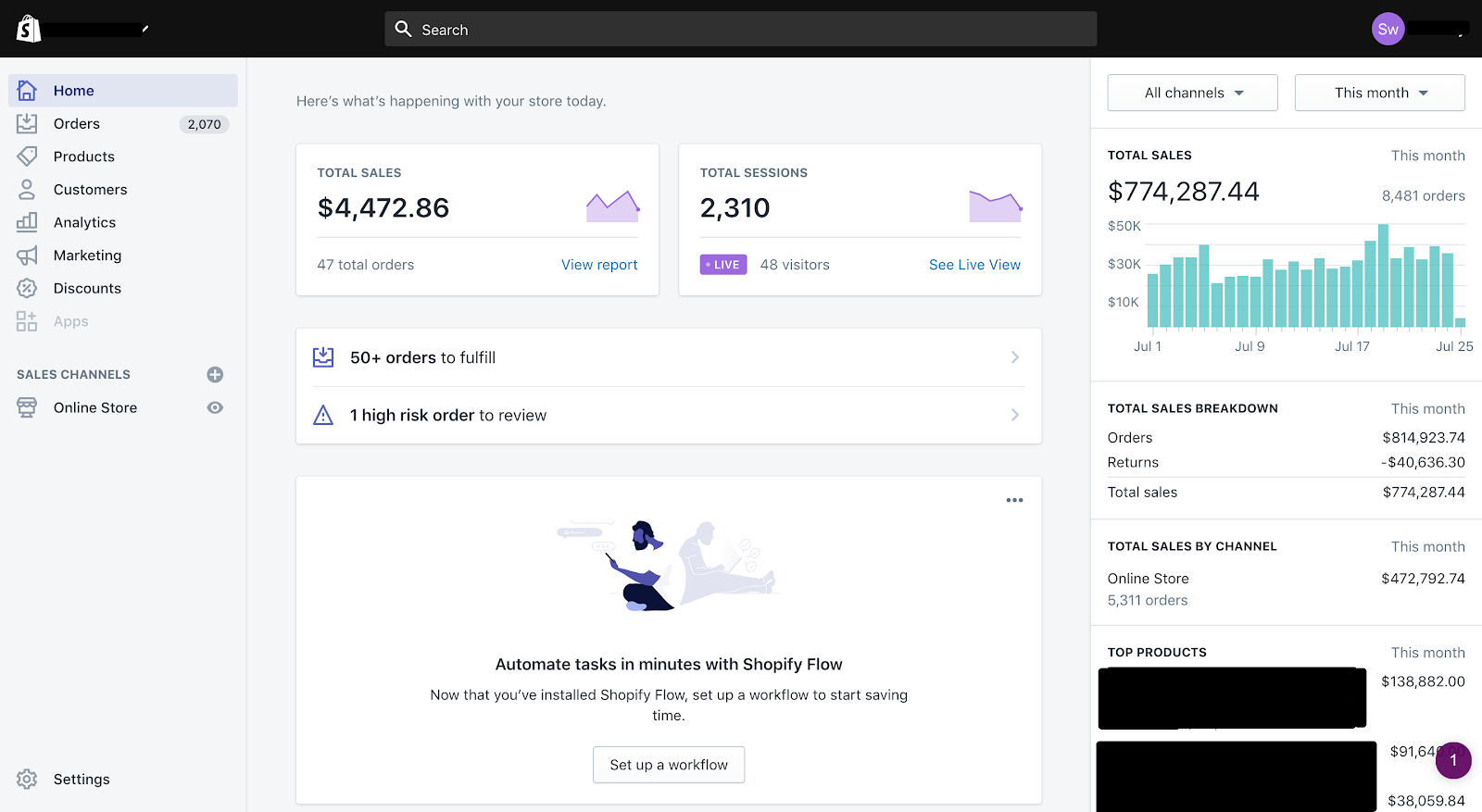
Shopify’s dashboard is straightforward, easy to navigate and beautifully laid out.
“It’s just so easy it’s almost too good to be true, but it’s real. I can add a product instantly and don’t have to be an expert coder since Shopify Plus has its own experts to help with the backend if needed.”
– Mike Brown, Owner of Death Wish Coffee
“What we loved about Shopify Plus is how easy it is for everyone in the organization to interact with the platform. It’s a lot less complicated and geared toward mobile-first enterprise ecommerce with social and mobile built right in.”
– Uri Minkoff, CEO and Co-Founder of Rebecca Minkoff
#3 Merchant satisfaction
Another important difference between the two solutions is how happy their merchants feel using them.
Leading software review site TrustRadius revealed that businesses using Websphere Commerce to host their sites have reported a lower level of satisfaction than those using Shopify Plus (7.3/10 compared to Shopify Plus’ 8.9/10 score).
At Swanky, we’ve found that a lower level of merchant satisfaction usually comes down to running your ambitious, high-volume enterprise on an outdated platform which is less easy to use and less dependable than it should be.
IBM Websphere Commerce vs Shopify Plus: The final decision
Ultimately, Shopify Plus and Websphere Commerce do have some compelling strengths in common.
For example, both multi-channel solutions are cloud-based – meaning that their stores load quickly for customers all over the world – and pride themselves on their flexibility and the number of advanced internationalisation features they have to offer their merchants.
However, what we’ve found is that behind its hefty price tag, Websphere Commerce lacks a lot of the scalability and reliability that Shopify Plus has become so known and loved for by its merchants.
While store owners relying on Websphere’s older architecture are left worrying about technical disasters during peak sales periods, businesses thriving on the newer, more scalable Shopify Plus can better focus on their marketing and logistics – and are free to enjoy the excitement of their sales and exponential growth.
In the battle between old and new, Shopify Plus therefore wins hands down when it comes to affordability, ease of use, reliability and merchant happiness. And whatever your unique business needs may be, every enterprise needs a platform they can trust.
Looking to replatform your ecommerce store from IBM Websphere to Shopify Plus? Swanky was one of the first three agencies in Europe to be named Shopify Plus Experts, so we really know our stuff. Find out more about our migration services here.

